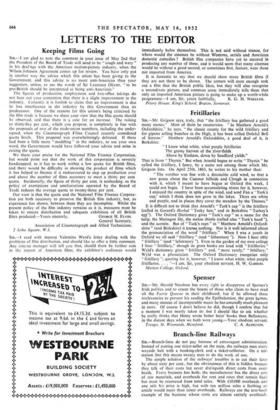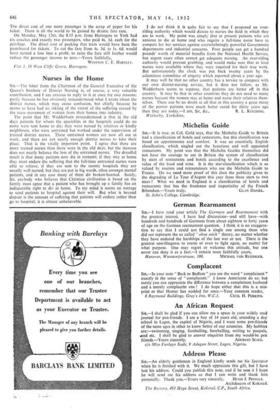Branch'-line Railways
Sut,—Branch-lines do not pay because of extravagant administration. Instead of putting one ticket-seller on the train, the railways man every wayside halt with a booking-clerk and a ticket-collector. On a ten- station line this means twenty men to do the work of one.
The simple solution of the railways' troubles is to cut their fares by about sixty per cent., but the obviousness of this is hidden because they talk of their costs but never distinguish direct costs from over- heads. Every business has both; the manufacturer has the direct cost of raw materials, and overheads for rent and rates that remain fixed but must be recovered from total sales. With E10,000 overheads and one sale h:s price is high, but with ten million sales a farthing an article would more than cow overheads. Railways are the text-book example of the business whose costs are almost entirely overheads. The direct cost of one more passenger is the scrap of paper for his ticket. There is all the world to be gained by drastic fare cuts.
On Monday, May 12th, the 8.15 p.m. from Harrogate to York had six coaches and exactly two passengers, who paid 4s. 3d. each for the ,privilege. The direct cost of packing that train would have been the pasteboard for tickets. To cut the fare from 4s. 3d. to is. 6d. would have turned a loss into a profit; to raise the fare still further would reduce the passenger income to zero.—Yours faithfully,
WINSTON C. E. HARTLEY.
Flat 3, 18 West Clige, Grove, Harrogate.



































 Previous page
Previous page